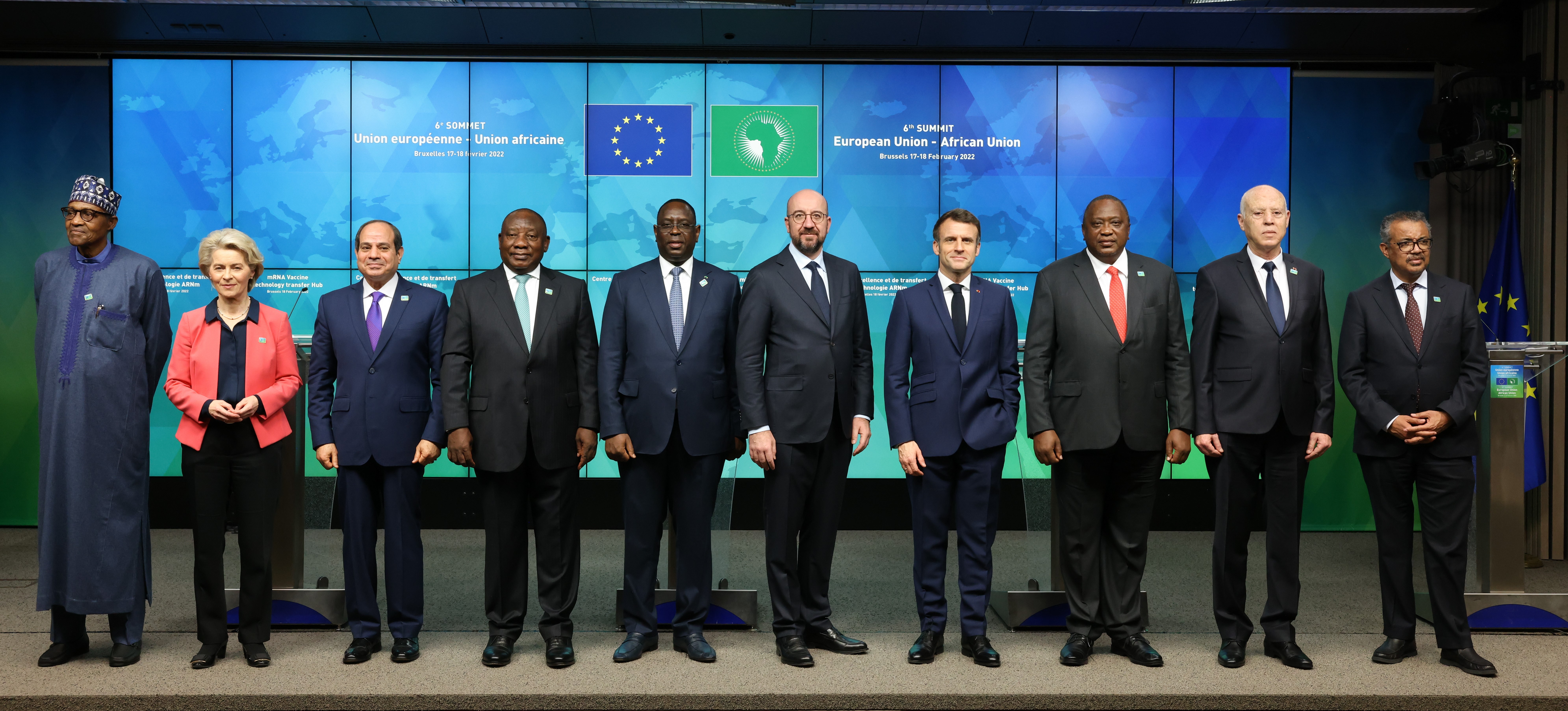The sixth African Union (AU) and European Union (EU) summit took place over 17 and 18 February 2022 in Brussels and concluded with AU and EU leaders agreeing to a joint vision for a renewed partnership with an investment package of €150 billion.
The funds aim to support a common ambition for 2030 and the AU Agenda 2063 by building more diversified, inclusive, sustainable, and resilient economies.
Sectors to be financed
The investment package aims to boost public and private investment in:
- Energy, transport, and digital infrastructure
- Energy transition that is fair, just, and equitable, taking into account the specific and diverse orientations of African countries with regards to access to electricity
- Green transition, including supporting the implementation of the national plans of African countries under the Paris Agreement
- Digital transformation that supports connectivity and affordable and better access to the digital and data economy
- Sustainable growth and decent job creation, including by investing in the creation of businesses owned by young people in Africa
- Transport facilitation and the efficiency of connected transport networks
- Mobility and employability of students, young graduates, and skilled workers
The health sector and the education systems are also in the spotlight with specific funding instruments announced for:
- Supporting initiatives related to pandemic preparedness, health security, and equitable access to essential health services
- Inclusive and equitable quality education, including by promoting vocational education and training, also at the regional level.
Financial bodies backing the project
In terms of implementation, the EU and the AU plan to leverage public funds to stimulate private investments and to improve the business and investment climate by reforming governance and supporting African entrepreneurship.
To achieve this, international and national financial institutions, such as the European Investment Bank and the African Development Bank, as well as public/private partnerships will also be mobilised according to the post-summit statement. The EU and the AU will also work to leverage and facilitate transparent remittances, notably by reducing transaction costs.
EU and AU leaders further committed to boosting regional and continental economic integration, particularly through the African Continental Free Trade Area, AfCFTA. According to the World Bank, AfCFTA will create the largest free trade area in the world, connecting 1.3 billion people across 55 countries with a combined gross domestic product valued at US$3.4 trillion. This has the potential to lift 30 million people out of extreme poverty but achieving its full potential will depend on putting in place significant policy reforms and trade facilitation measures, the World Bank commented.

Pandemic, vaccination issues
In terms of the macro-economic effects of the pandemic on African countries, leaders have called for voluntary contributions to achieve at least US$100 billion liquidity support to those countries most in need, of which a major part should benefit Africa. US$13 billion of the US$55 billion that has been pledged through special drawing rights is from EU countries.
The EU also reaffirmed its pledge to co-ordinate with the Africa Vaccine Acquisition Task Team and provide at least 450 million COVID vaccine doses to Africa by mid-2022. Europe will mobilise €425 million to ramp up the pace of vaccination, support the efficient distribution of doses, and train medical teams.
Fair and equitable access to vaccines has long been on the African agenda with South African President, Cyril Ramaphosa, calling for intellectual property rules to be waived to achieve vaccine equity. Ramaphosa said the enforcement of the Trade-Related Aspects of Intellectual Property Rights was hampering the ability of developing countries to manufacture their own vaccines.
Speaking at the closing session of the summit, European Commission President Ursula von der Leyen proposed compulsory licensing, technology transfer, and “efforts to scale up production while limiting the cost of intellectual property” as a possible solution.
On the sidelines of the summit, the World Health Organization also announced that Egypt, Kenya, Nigeria, Senegal, South Africa, and Tunisia are the first African countries that will receive the technology needed for the production of mRNA vaccines on the continent.
Human rights, climate
Human rights, cultural exchanges, and research support as well as investment in women and youth empowerment were other areas of joint agreement noted as outcomes of the summit.
The Paris Agreement and the outcomes of the COPs were not forgotten, with Africa’s energy transition being acknowledged as vital for its industrialisation. The EU has committed to supporting Africa in its transition to foster just and sustainable pathways towards climate neutrality.

